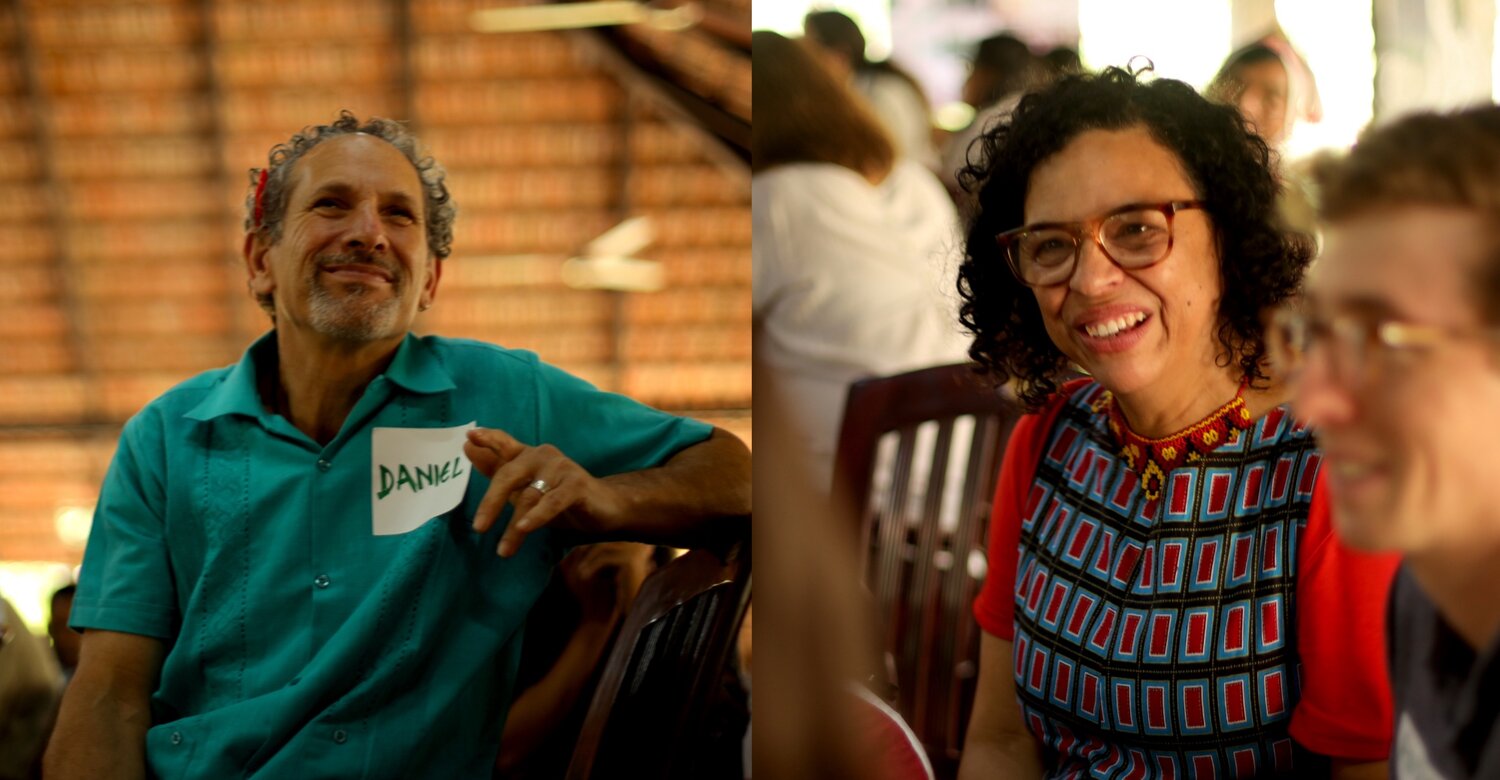Nearly a decade after it was founded, the Agroecology Fund’s Executive Committee is pleased to announce a shift in leadership. Effective immediately, Angela Cordeiro and Daniel Moss will be Co-Directors of AEF’s growing programs.


What’s behind this exciting evolution? A Q&A:
Why did you decide to make this leadership change?
Daniel: Since joining the Agroecology Fund I’ve seen the Fund evolve in exciting ways. We’ve created a pretty horizontal network through which grantees, advisors, donors, and allies collaborate to support a growing agroecology movement. It’s now time for AEF staff to walk the talk internally.
The Agroecology Fund seeks to elevate the voices, wisdom and lived experiences of people from all over the world, especially those who have been historically marginalized. Our leadership structure should reflect our values. Having led AEF for seven years, a white man from the Global North, we felt like it was time to bring new and diverse perspectives to the Fund’s leadership. Angela’s experience and perspective––as a Brazilian woman having spent four decades deeply immersed in agroecology and farmer movements across Latin America and Africa––is essential to AEF. She deepens our learning, responsiveness, and creativity.
Angela: Actually, the idea and the invitation came from Daniel. I received the invitation with surprise and first asked him: why? He presented the above arguments and convinced me. The Agroecology Fund has always experimented and innovated on many fronts. This will be one of them, and will certainly be a learning process for all of us.
What are some challenges and opportunities you foresee in sharing leadership?
Angela: With Daniel’s leadership, our internal work dynamics have always been based on consultation and a shared decision-making process. At the same time, he motivates everyone to be creative and take action. I believe this facilitates the smooth transition to a co-directorship model. From a personal point of view, it is an opportunity to get to know the philanthropic universe better, to work with Daniel to continue to increase the number of funders to the Agroecology Fund and the number of grants made. I am honored by his invitation to share leadership. An important challenge is to maintain a good balance between shared leadership and the agility that AEF requires. Co-deciding can add time. We will find ways to be more creative and never bureaucratic. That would definitely not fit with AEF´s spirit.
Daniel: Shared leadership, while certainly presenting opportunities to get tangled up in too many meetings and deliberations, offers so many possibilities for innovation, complementarity, and safeguards against failure – all characteristics of agroecology itself! I’ve had the honor of working with Angela for the past five years, first in her role as an advisor and most recently as Program Director. As a seasoned Brazilian agroecology activist, Angela offers so much warmth and solidarity to grassroots partners, so much technical integrity in supporting them to monitor and evaluate their work, and so much wisdom about movement-building. Trained as an agronomist with a speciality in plant genetics and with long experience in working with cooperatives, she understands the challenges our partners face in growing and marketing food. Having worked as an evaluation consultant with bilateral and multilateral donors, she is fastidious about gathering and interpreting data. And unlike me, she knows the difference between outcomes and outputs. I couldn’t be more thrilled and energized.
It sounds complicated! Who will do what?
Daniel: Angela and I welcome shared thinking and mutual accountability. While we look forward to active co-management of the growing AEF network, we will retain clear areas of responsibility. I will continue to focus primarily on resource mobilization and our growing communications work, which will include new staff and capacity building grants, while Angela will be the point person for our grantmaking process, operations and monitoring, evaluation and learning (MEL). I will continue to be the primary point of contact with our donors.
Angela: As Daniel said, we will continue with the same responsibilities that we already have. In my case, I´ll add the supervision of the Operations Manager, a new position. AEF’s growth in the volume of grants and new regional funds like Fondo Agroecologico en la Península del Yucatán (FAPY) have significantly increased the operational workload and we are very happy to bring on a colleague to support this work. It is important to say that we are privileged to have a governance structure that includes long-term partners, advisory board members, and donors. They have helped us enormously in steering AEF’s growth. Certainly we will continue to count on them.
With co-leaders at the helm, what’s next for the Fund?
Angela: We can learn from organizations that already practice co-directorship that there is no recipe. Each organization has its own route. Leadership is always associated with power, and each of us has stereotypes of how that should look. This model challenges perceptions that each of us has ingrained within us. Let’s see how this co-leadership evolves as we put it into practice,learn – and unlearn and relearn where necessary– together.
Daniel: This leadership transition could not come at a better time – we are just now deliberating a new five-year strategic plan. Angela and I look forward to continuing to work closely with advisors and donors to ensure that our grantee partners have the support they need to re-shape and transform food systems. Co-leaders will undoubtedly improve AEF’s mission-performance, agility, resilience, and sustainability – as the Fund continues to grow alongside the movements it supports.
Photographs courtesy Rucha Chitnis.
